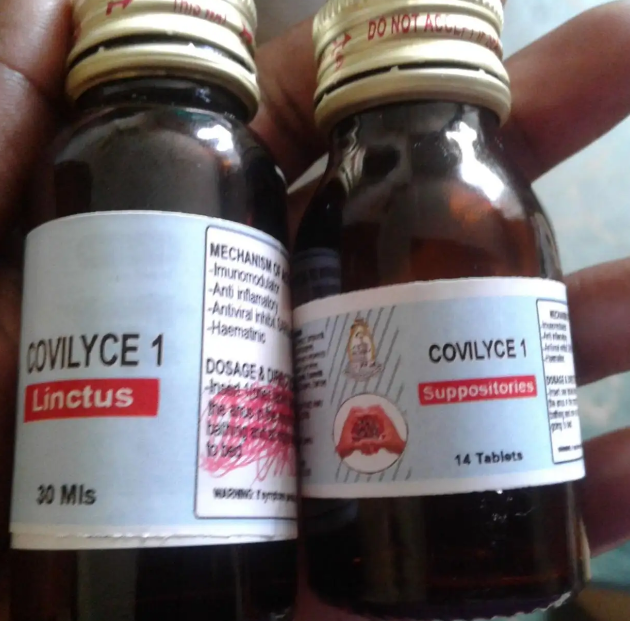Gulu University’s faculty of Bio-technology and Pharmaceutical Studies (PharmBiotec), needs financial assistance to produce large quantities of their Covid-19 herbal treatments.
Three weeks ago, a group of more than ten scientists at the University started packing four different concoctions which they said they have been administering to covid-19 patients in the community since January 2021.
The herbs named Covilyce 1, which come in form of Powder, Nasal drops, (anal) suppositories and (syrup) Linctus were formulated from eight different herbs.
Dr. Alice Lamwaka, a senior lecturer at PharmBiotec, revealed that they formulated the four products, basing on their knowledge of herbs used in treating infections especially during epidemics and the fact that they already have a unit for traditional medicines at the University.
Last month, the University said it has more than 70 potential Covid-19 herbs lined up for testing. The procedure was however interrupted by the current lockdown.
However, Dr. Lamwaka said these particular herbs were not tested but were subjected to phytochemical analysis on the herbs, to find out what active ingredients are present in them and what diseases they can cure.
Dr. Lamwaka claimed that the herbs can cure a user with signs and symptoms of covid-19 between 12-72 hours of getting treatment. Those with mild symptoms of covid-19, she said, are given the nasal drops in their mouth, ears, and nose and get well between 12-72 hours.
Patients whose infections have gone to their chest use the linctus which goes down through the systemic circulation. Those with co-morbidities; covid-19, hypertension, asthma, ulcers, and diabetes, use the powder in combination with the Linctus and nasal drops and cut off viral infection within 12 hours.
Then patients who are unconscious, can’t swallow, on oxygen, or have difficulty breathing, used the suppository, which is administered via the rectum.
Dr. Lamwaka said the good feedback from the community that the products work, even in severely ill patients, motivated the team to prepare all the different formulations.
She estimates that more than 100 people have used these herbs since January 2021.
However, Dr. Lamwaka said they are still manually pounding the herbs using mortar and pestle because they don’t have a grinder, and manually packing the herbs because they don’t have a production line. She said financial support is needed to help them produce enough for both national and international users.
Currently, the university is using the more than 200 traditional herbalists that got trained at the faculty, to administer the herbs to covid-19 patients in the community.
However, Michael Mutyaba, who heads the traditional medicines division at National Drugs Authority, NDA, said, said he was not aware of the production of any Covid-19 herbs by the University.
Recently, NDA approved the use of Covidex, another herbal concoction as part of the Covid-19 cure. Since that time, the price has continued to soar. URN








